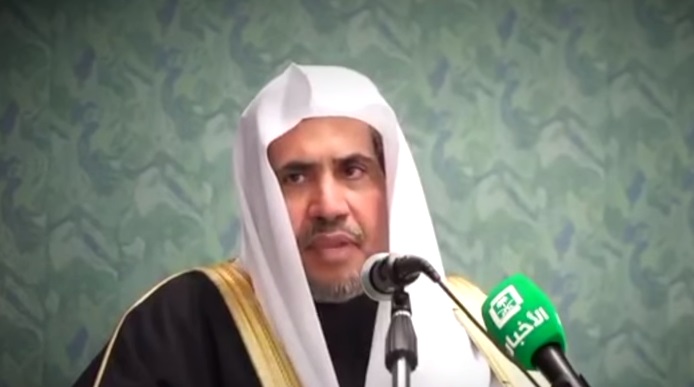FRESH AIR
An Amazing statement from the Saudi-affiliated World Muslim League
January 31, 2018 | Gareth Narunsky

For years, Saudi Arabia has been known as the leading exporter of radical Islam in the world, with its brand of extremist Wahhabism inspiring some of the most notorious hate preachers and terrorist groups around the globe.
It was also one of the world’s most antisemitic countries, as noted by Washington Institute Executive Director Robert Satloff:
“Saudi Arabia? Land of religious purity, whose king (Faisal) once celebrated the Protocols of the Elders of Zion as historical fact, whose UN representative (Jamil Baroody, 1976) once denounced Anne Frank’s diary as a forgery and claimed the murder of millions of Jews by the Nazis was fiction?”
But things seem to be changing dramatically in the desert kingdom. Under the leadership of Crown Prince Mohammad bin Salman, Saudi Arabia is taking steps to both modernise and moderate, while the threat posed by expanding Iranian influence in the region has even seen covert cooperation with Israel.
But even despite these promising developments, the statement issued by Muslim World League Secretary-General Dr. Mohammed Al Issa to mark International Holocaust Remembrance Day last week was as unexpected as it was game-changing.
You can read the letter, written by Al Issa to US Holocaust Memorial Museum, Director Sara Bloomfield, in full here, but here are some highlights:
“Our great sympathy [is] with the victims of the Holocaust, an incident that shook humanity to the core, and created an event whose horrors could not be denied or underrated by any fair-minded or peace-loving person.
“This human tragedy perpetrated by evil Nazism won’t be forgotten by history … True Islam is against these crimes. It classifies them in the highest degree of penal sanctions and among the worst human atrocities ever.
“We consider any denial of the Holocaust or minimizing of its effect a crime to distort history and an insult to the dignity of those innocent souls who have perished.”
The Muslim World League, on whose behalf the letter was written, was once notorious for its extremism and its key role in spreading the kingdom’s radical, antisemitic and anti-Western agenda. But as Satloff notes, under former Saudi justice minister Al Issa, like Saudi Arabia itself, the organisation is transforming – “from an organization synonymous with extremism to one that preaches tolerance.”
He writes of a meeting with Al Issa last December:
“Al Issa struck an impressive note. Not only did he underscore a decidedly un-Saudi commitment to religious outreach, speaking fondly of his recent visit to a Paris synagogue, but also he refused to take the bait when asked about President Trump’s recognition of Jerusalem as Israel’s capital. If I expected any Saudi official to bang the table, sermonize about the Muslim connection to Al Quds and decry the President’s decision to recognize the sovereignty of the Jewish state anywhere in the city, it would have been the secretary-general of the Muslim World League. Instead, he politely declined comment, saying only that the League is committed to peace and is not a political body.”
That it was at Satloff’s urging that Al Issa wrote the letter does not diminish its importance. The Secretary-General, who has also agreed to visit the US Holocaust Memorial Museum in May this year, did not have to agree to the request. That he jumped at the opportunity speaks volumes about the sincerity of his pledge to transform his organisation into a moderate and non-political group.
It can also be seen as a microcosm of what is happening in Saudi Arabia itself. While there is a long way to go, these positive developments, which seemed impossible just a few short years ago, are concrete proof that a future where Saudi Arabia is a stabilising and moderate force in the Middle East has at least become a plausible possibility.
There is also now real reason to hope that a new future of peace and cooperation – and perhaps even open diplomatic relations – may one day be possible between Saudi Arabia and Israel, and Saudi Arabia and the Jewish people more broadly.
Gareth Narunsky
Tags: Antisemitism
RELATED ARTICLES

He Survived Bondi. Now He’s Fighting Back: Arsen Ostrovsky addresses AIPAC conference

US Middle East strategy amid regional instability: Dana Stroul at the Sydney Institute





















